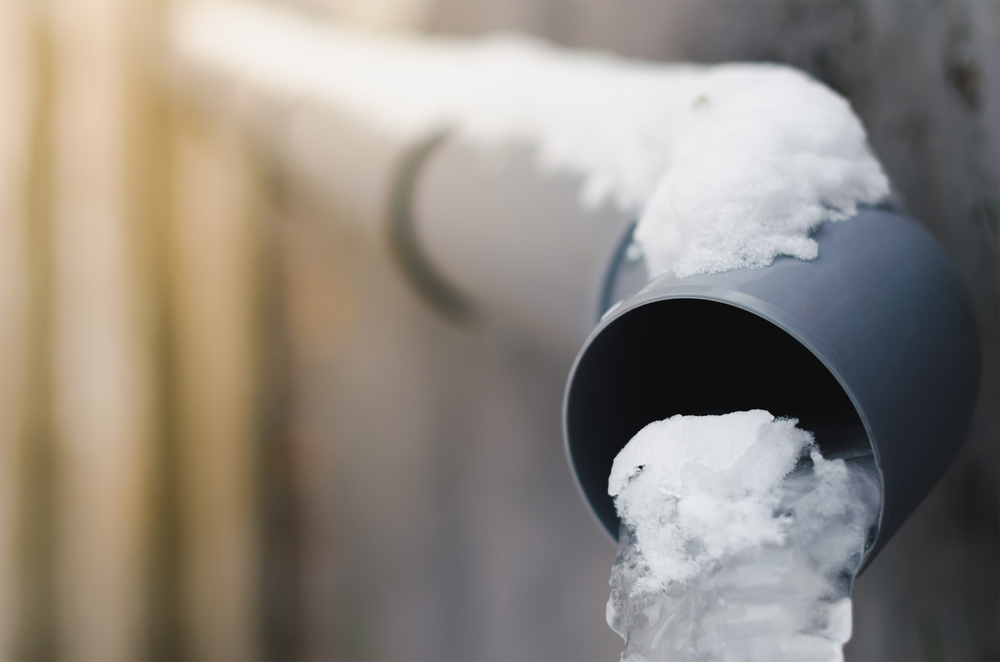Preventing Pipes from Freezing: Effective Tips
Preventing Pipes from Freezing: Effective Tips
Blog Article
Just how do you really feel in regards to Prevent Frozen Pipes ?

Cold weather can ruin your pipes, specifically by freezing pipelines. Here's how to prevent it from taking place and what to do if it does.
Intro
As temperatures decrease, the threat of frozen pipelines boosts, potentially causing expensive repair services and water damage. Recognizing just how to avoid frozen pipes is important for house owners in chilly climates.
Comprehending Frozen Pipes
What causes pipes to freeze?
Pipes ice up when exposed to temperatures below 32 ° F (0 ° C) for expanded durations. As water inside the pipes freezes, it increases, taxing the pipe walls and possibly triggering them to burst.
Threats and damages
Icy pipelines can lead to water system disturbances, property damages, and costly repairs. Ruptured pipes can flood homes and create extensive architectural damages.
Indicators of Frozen Piping
Recognizing frozen pipelines early can stop them from breaking.
Just how to recognize frozen pipes
Look for reduced water circulation from taps, uncommon smells or noises from pipelines, and visible frost on exposed pipes.
Prevention Tips
Insulating vulnerable pipelines
Cover pipelines in insulation sleeves or utilize warm tape to secure them from freezing temperature levels. Concentrate on pipelines in unheated or outside areas of the home.
Heating techniques
Maintain interior areas adequately warmed, specifically areas with pipes. Open up cupboard doors to enable cozy air to circulate around pipelines under sinks.
Shielding Outdoor Pipes
Yard hose pipes and outside taps
Separate and drain yard hose pipes prior to winter. Install frost-proof spigots or cover outdoor faucets with protected caps.
What to Do If Your Pipes Freeze
Immediate activities to take
If you think icy pipes, keep faucets open up to ease pressure as the ice thaws. Use a hairdryer or towels soaked in hot water to thaw pipelines gradually.
Long-Term Solutions
Architectural changes
Take into consideration rerouting pipes far from outside walls or unheated areas. Add added insulation to attics, cellars, and crawl spaces.
Updating insulation
Invest in top quality insulation for pipelines, attic rooms, and walls. Appropriate insulation helps keep regular temperature levels and minimizes the risk of icy pipes.
Conclusion
Protecting against frozen pipes needs positive procedures and quick reactions. By recognizing the reasons, signs, and safety nets, property owners can shield their pipes throughout winter.
Helpful Tips to Prevent Frozen Pipes this Winter
UNDERSTANDING THE BASICS: WHY PIPES FREEZE AND WHY IT’S A PROBLEM
Water freezing inside pipes is common during the winter months, but understanding why pipes freeze, and the potential problems it can cause is crucial in preventing such incidents. This section will delve into the basics of why pipes freeze and the associated problems that may arise.
THE SCIENCE BEHIND FROZEN PIPES
When water reaches freezing temperatures, it undergoes a physical transformation and solidifies into ice. This expansion of water as it freezes is the primary reason pipes can burst. As the water inside the pipe freezes, it expands, creating immense pressure on the walls. If the pressure becomes too great, the pipe can crack or rupture, leading to leaks and water damage.
FACTORS THAT CONTRIBUTE TO PIPE FREEZING
Low Temperatures: Extremely cold weather, especially below freezing, increases the risk of pipes freezing. Uninsulated or Poorly Insulated Pipes: Pipes located in unheated areas, such as basements, crawl spaces, or attics, are more prone to freezing. Insufficient insulation or lack of insulation altogether exacerbates the problem. Exterior Wall Exposure: Pipes running along exterior walls are susceptible to freezing as they encounter colder temperatures outside. Lack of Heating or Temperature Regulation: Inadequate heating or inconsistent temperature control in your home can contribute to frozen pipes. PROBLEMS CAUSED BY FROZEN PIPES
- Pipe Bursting: As mentioned earlier, the expansion of water as it freezes can cause pipes to burst, resulting in significant water damage.
- Water Damage: When pipes burst, it can lead to flooding and water damage to your property, including walls, ceilings, flooring, and personal belongings.
- Structural Damage: Prolonged exposure to water from burst pipes can compromise the structural integrity of your home, leading to costly repairs.
- Mold and Mildew Growth: Excess moisture from water damage can create a favorable environment for mold and mildew growth, posing health risks to occupants.
- Disrupted Water Supply: Frozen pipes can also result in a complete or partial loss of water supply until the issue is resolved.
WHY CERTAIN PIPES ARE MORE PRONE TO FREEZING
- Location: Pipes located in unheated or poorly insulated areas, such as basements, crawl spaces, attics, or exterior walls, are at higher risk of freezing.
- Exterior Pipes: Outdoor pipes, such as those used for irrigation or exposed plumbing, are particularly vulnerable to freezing as they are directly exposed to the elements.
- Supply Lines: Pipes that carry water from the main water supply into your home, including the main water line, are critical to protect as freezing in these lines can affect your entire plumbing system.
- Underground Pipes: Pipes buried underground, such as those connected to sprinkler systems or outdoor faucets, can be susceptible to freezing if not properly insulated.
https://busybusy.com/blog/helpful-tips-to-prevent-frozen-pipes-this-winter/

I am very fascinated with Preventing and dealing with frozen pipes and I'm hoping you appreciated the new post. In case you enjoyed our blog entry if you please consider to pass it around. I appreciate your readership.
Quote & Schedule Report this page